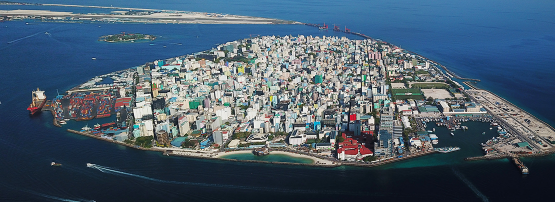
One of the biggest advantages of attending technical community events, like NOG meetings and this week’s APRICOT conference, has always been the social corridor chats between presenters, attendees, and sponsors.
While the last few years have made such chats less impromptu, with fewer face-to-face NOG meetings, legacies of past discussions live on today. The formation of the Maldives Internet Exchange (MVIX) is one of them.
When operational later this year, MVIX will reduce costs for local ISPs to interconnect, improve user experience, and encourage developers to host services related to the Maldives locally.
MVIX will be the first of many Internet Exchange Points (IXPs) in the Asia Pacific region to be established over the coming years, thanks to a newly signed Memorandum of Understanding (MoU) between APIX, APNIC, APNIC Foundation, and the Internet Society.
It all started with informal chats at NOG events
The story of MVIX unofficially began a few years ago over the course of several face-to-face NOG events in the region. APNIC’s Training Delivery Manager for South Asia and Oceania, Tashi Phuntsho, recalls he and other APNIC team members were chatting with Matt Jansen of Facebook during these events about the most efficient and fair way to distribute caches in smaller economies.
“Rather than giving caches to only a few large operators that could meet the required number of users or traffic volume, our suggestion to content providers like Facebook was to encourage smaller ISPs in these economies to band together to share a cache. Ideally by developing an IXP where they could collect their user bases so all could benefit from the cache and other interconnecting advantages,” explains Tashi.
“Facebook liked the idea, as it allowed them to provide the benefits of these caches to a large proportion of users who were missing out. Shortly after, they involved APNIC’s technical assistance team and the Internet Society’s Naveed Haq, as he’d had similar discussions with them about smaller operators in Vanuatu, Tonga, and the Maldives.”
Ahmed Hafeez, Director of Network Solutions for SatLink, was one such smaller Maldives operator who had been in dialogue with Facebook about hosting a cache.
“A colleague of mine from Focus Infocom and I jointly approached Facebook about hosting a node,” remembers Hafeez, who said the high cost of bandwidth while accessing offshore Facebook content was making it very difficult to compete with the bigger operators.
Hafeez says the suggestion of collaborating with other smaller ISPs in their community to establish an IXP made a lot of sense.
“The Maldives has 100% Internet coverage in populated islands/resorts and a large growing percentage of Internet user base,” explains Hafeez.
“But ISPs are not fully interconnected, hence services that are hosted locally are not delivered to users locally. We believe an IXP will reduce costs for all ISPs in the Maldives to get interconnected, greatly improve user experience, and encourage developers to host services related to the Maldives locally.”
The hard part is done — getting competing networks to work together
Since being connected with APNIC and the Internet Society, Hafeez and his colleagues have registered MVIX as a not-for-profit, chosen a neutral location to host the IXP and decided on an IXP design based on previous projects that APNIC and the Internet Society have assisted in Fiji and Pakistan.
“Since the IXP is established as a non-profit, this helps us raise initial funds for the deployment,” says Hafeez.
The MoU signed between the partners, announced at APRICOT 2022, brings together APIX (supporting coordination), APNIC (providing training and technical assistance), APNIC Foundation (part-funding), and the Internet Society (part-funding), and leads the way for more open IXPs to set up in the region.
“Working with APIX, APNIC, APNIC Foundation, and the Internet Society also allows us to benefit from all their experience,” Hadeez said.
For Tashi, the experience is another great benefit of human networking through NOGs and other conferences, as well as an example of what can be achieved when operators from near and far work together as a community.
“Even though no equipment has been bought or configured, one of the hardest parts of the project is done,” says Tashi.
“They’ve worked together to establish a not-for-profit, decided on an IX model with shared powers at a board and operational level, and chosen a neutral venue.”
“Now, all that’s left is the fun part, which is working as a team to put the gear together, configuring it based on industry best current practices, and seeing the local traffic flow.”
“The IX founders also will need to agree on equal/shared powers, and ensure the long term sustainability and openness of the IX by working out the operation and maintenance of the IX infrastructure, to truly become a hub of the Internet ecosystem in Maldives.”
The views expressed by the authors of this blog are their own and do not necessarily reflect the views of APNIC. Please note a Code of Conduct applies to this blog.
